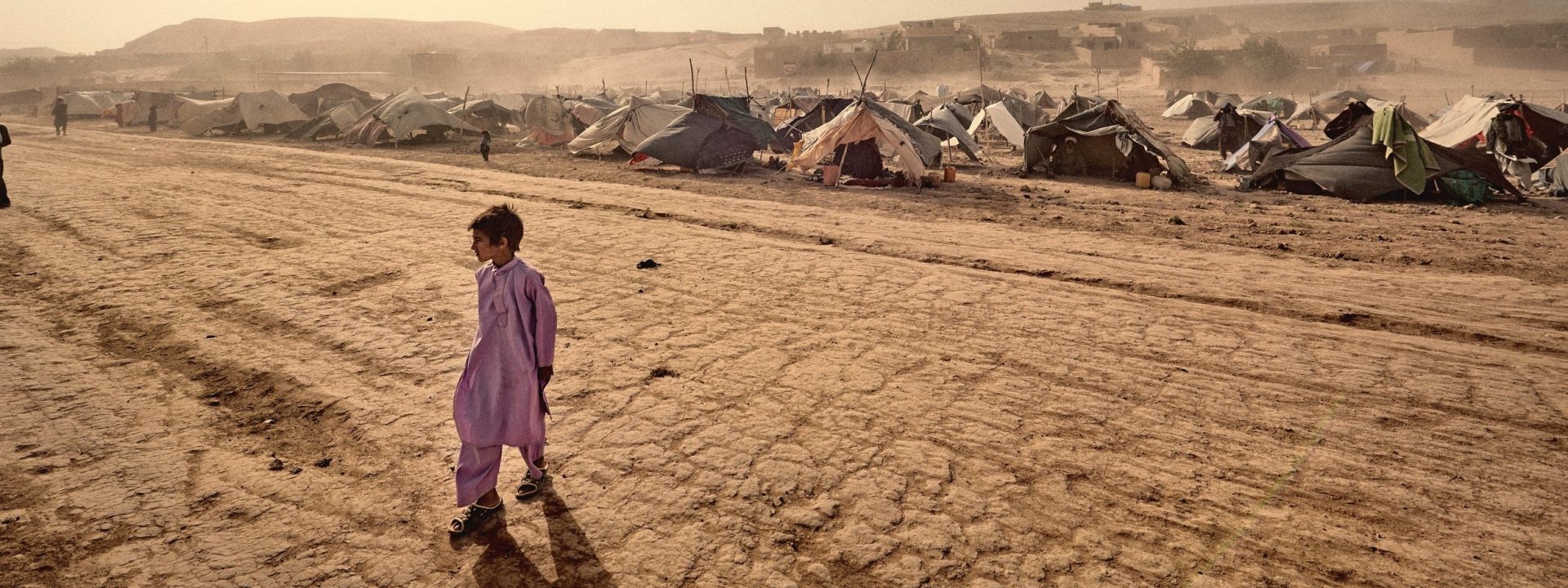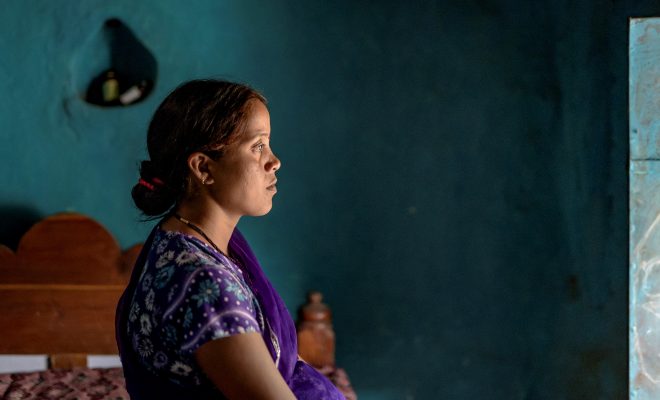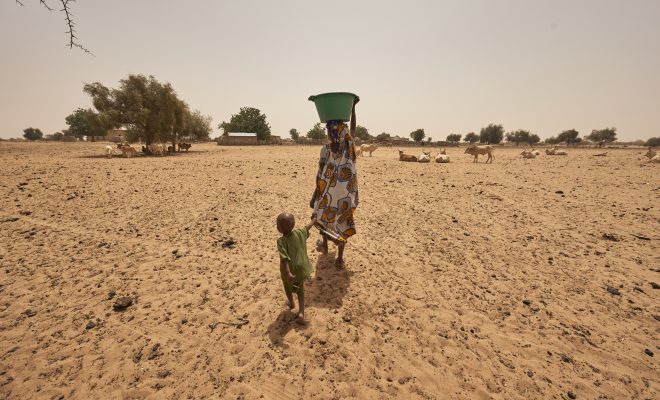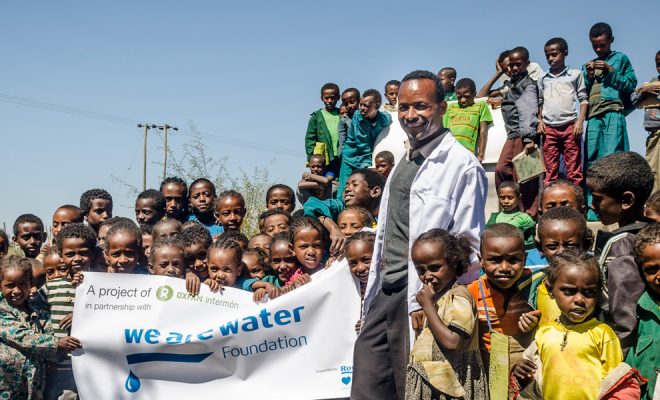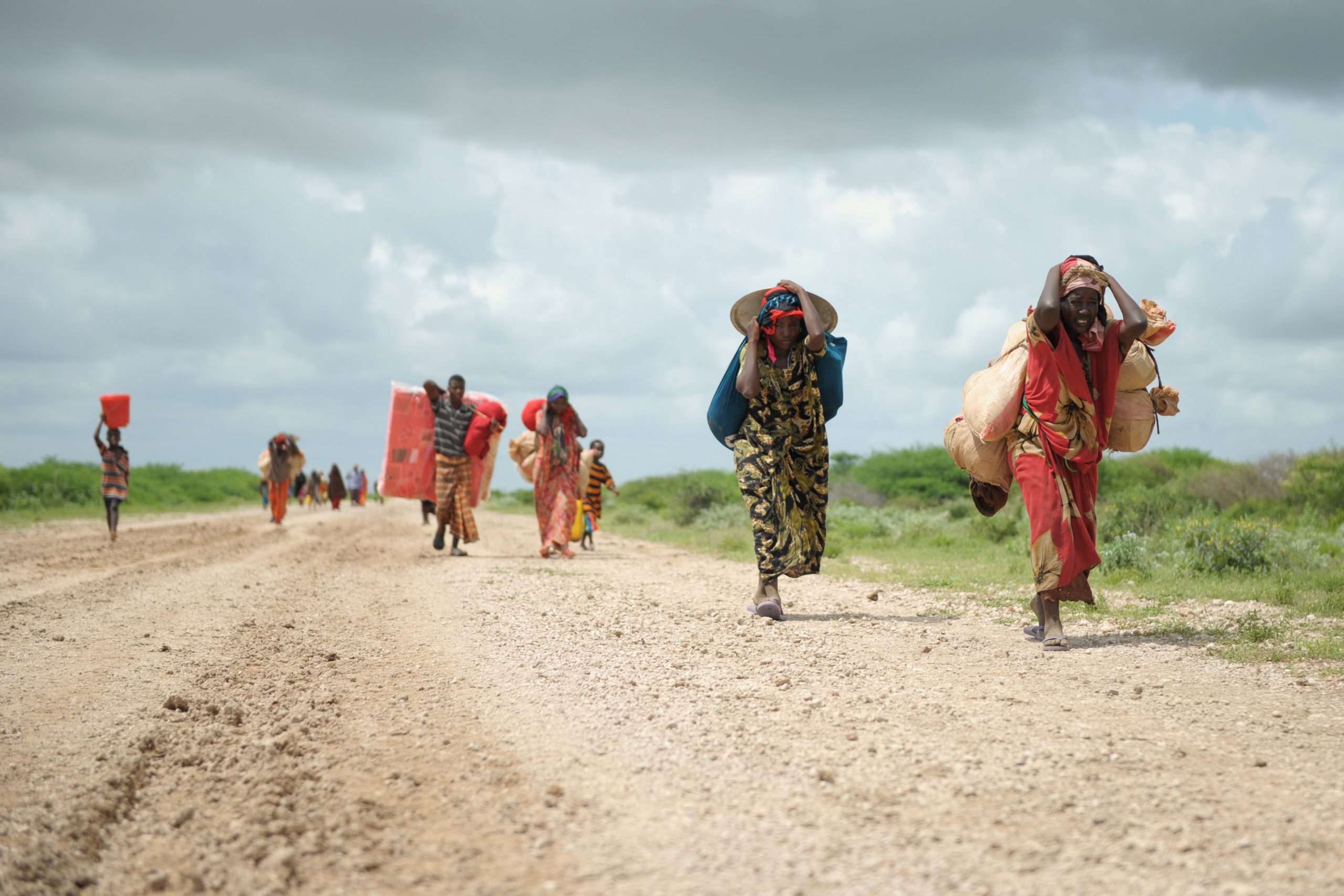
In the Sahel region, refugees flee from wars, threats because of their ethnicity or religion, their sexual orientation, or simply because they are poor. © UN Photo/Tobin Jones
In 2011, one of the first projects carried out by the We Are Water Foundation in collaboration with Intermón Oxfam was to bring water, sanitation and hygiene to the refugees of the conflict in Darfur, in western Sudan. The aid benefited 120,000 people fleeing the war in western Sudan, who were distributed in five refugee camps in Eastern Chad, one of the most water-stressed areas in the world.
At the time, the civil war in Darfur, which began in 2003, had been forgotten and the project helped to make visible a human displacement that was directly affecting Chad. This country, located in the Sahel, with the Sahara desert to the north and the savannah to the south, was – and still is – the third least developed country in the world, with a socio-economy that is unable to absorb the flood of displaced people and cover their rights (as set out in the 1951 Convention on the Status of Refugees.
Ten years later, far from improving the situation, Chad has seen its burden increase with new waves of people displaced by the humanitarian crises surrounding it: mainly the conflicts in Sudan, the violence of Boko Haram in the Lake Chad region and Nigeria, and the clashes between Muslims and Christians in the Central African Republic.
In the Sahel region, refugees flee from wars, threats because of their ethnicity or religion, their sexual orientation, or simply because they are poor. Women and children bear the brunt: many are fleeing from genital mutilation, from rape; and many have seen their children forced to become child soldiers or sex slaves.
Recently, violence in northeastern Nigeria has forced thousands of people, mostly women and children, to seek refuge once again in Chad, where Nigerian refugee camps have already housed some 11,300 people since 2014.
These outbursts are constant in the Sahel tinderbox. On the 11th June, UNHCR, the UN refugee agency, denounced an escalation of violence in Burkina Faso, Mali and Niger. UNHCR has provided shelter to more than 25,000 families in the Liptako-Gourma area, the border triangle where the three countries converge; however, humanitarian activities are severely hampered by growing insecurity, the impact of COVID-19 and the lack of resources.
The situation is terrible in Burkina Faso. The number of internally displaced people increased from 560,000 at the beginning of February to 848,000 at the end of April, an increase of 288,000 in approximately three months.
A scourge with a tendency to be forgotten
Beyond Chad and Africa, the humanitarian crisis of those fleeing is widespread throughout the world. It is a lacerating problem that questions the international humanitarian quality: for the third consecutive year, the data of displacements in the world shows record figures in June 2020.
On World Refugee Day, UNHCR reminds us that every three seconds a person is forced to leave his or her home, that 70.8 million people have had to flee in 2018 and that 51% of refugees are children.
There are many causes that could define this disgrace as silent: the industrialized world, the one that generates the greatest flows of information, mainly focuses on its problems. It is not predisposed to think that, as UNHCR points out, in less time that it takes us to read these lines, somewhere in the world, a person has become a refugee.
The Covid-19 crisis has increased this lack of informative attention. Even a tragedy like the war in Syria has virtually disappeared from the media and has only maintained its presence on social networks, although drowned out by content referring to the pandemic.
Few have mentioned that some 40,000 refugees seeking international protection are still crowded into settlements in Greece. Thousands of people in the camps in Malaka, Moria and Ritsona are living with serious shortages of medical care, food, water, sanitation and hygiene. Many of them also suffered shameful xenophobic and racist attacks at the beginning of last March, which have not had much media resonance in the part of the world that was frightened by the start of the pandemic.
Another unresolved problem is that of Afghan refugees. UNHCR reports that, of the 35 million people living in Afghanistan today, 25% are refugees who returned home over the past 18 years, and there are still 4.6 million Afghans who continue to live outside the country at increasing risk of being forgotten.
For refugees, the risk of SARS-CoV-2 infection is doubly alarming. In the camps, the impossibility of maintaining social distance is compounded by a lack of basic hygiene; on the other hand, the already precarious medical care can easily be overwhelmed if the infection spreads.
The climate crisis is still there
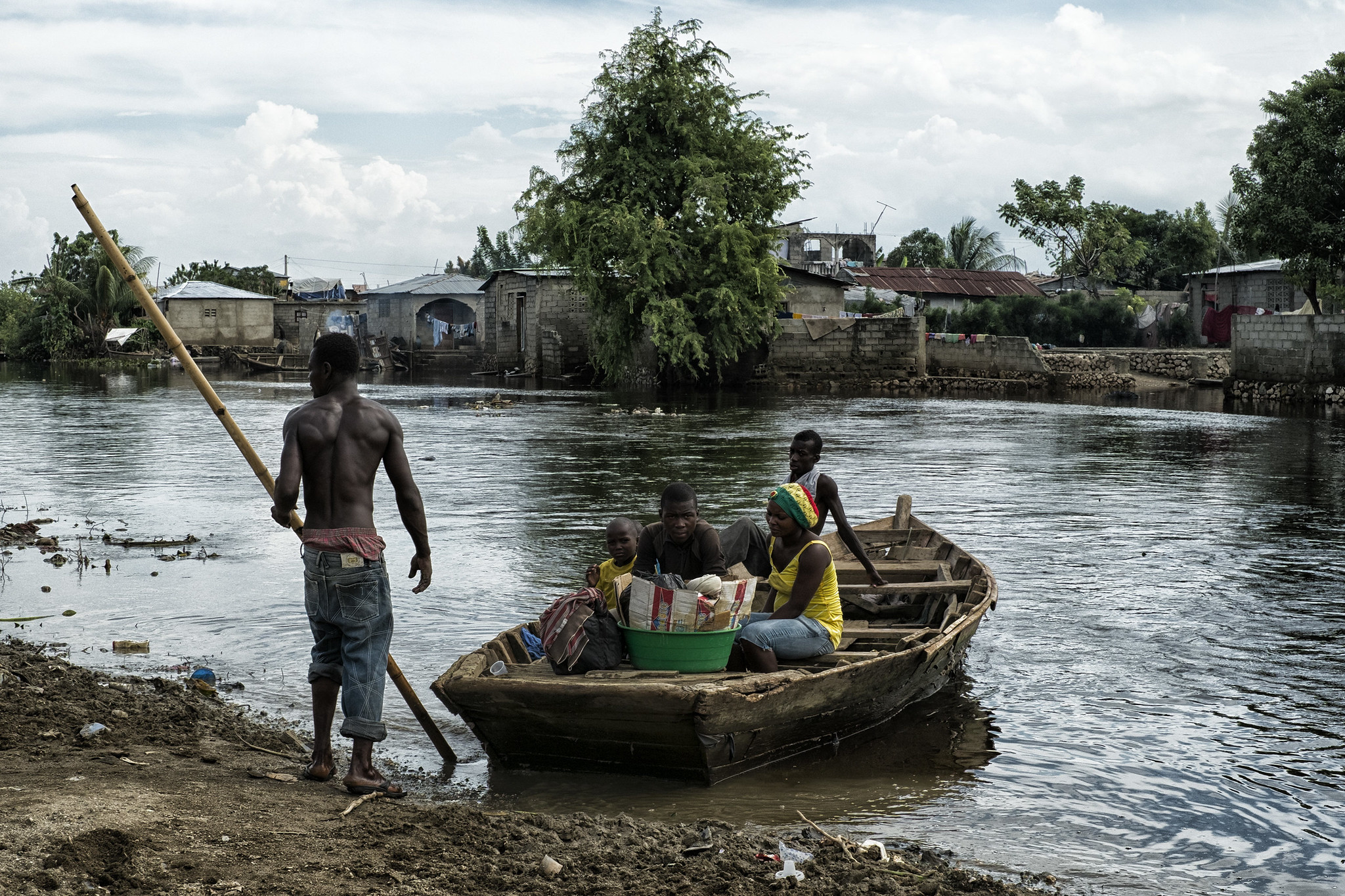
In countries where the lack of rigorous census and the endemic lack of transparency and rigor are common, it is very difficult to obtain reliable data on migrations. ©UN Photo/Logan Abass
The climate crisis has also continued to wreak havoc and generate displacement. In mid-May, when most industrialized countries were struggling with the dilemma of whether to further slow the pandemic or revive the battered economy, torrential rains in East Africa displaced half a million people, including 240,000 children. Displaced people from the poorest areas of Burundi, Ethiopia, Djibouti, Kenya, Rwanda, Somalia, Tanzania and Uganda are crowding wherever they can: camps, churches and schools. There they have no chance of preventing the spread of coronavirus and other endemic infections common in their habitat, such as diarrhea and pneumonia, which are caused by the lack of access to safe water, sanitation and hygiene.
Solidarity also in governance
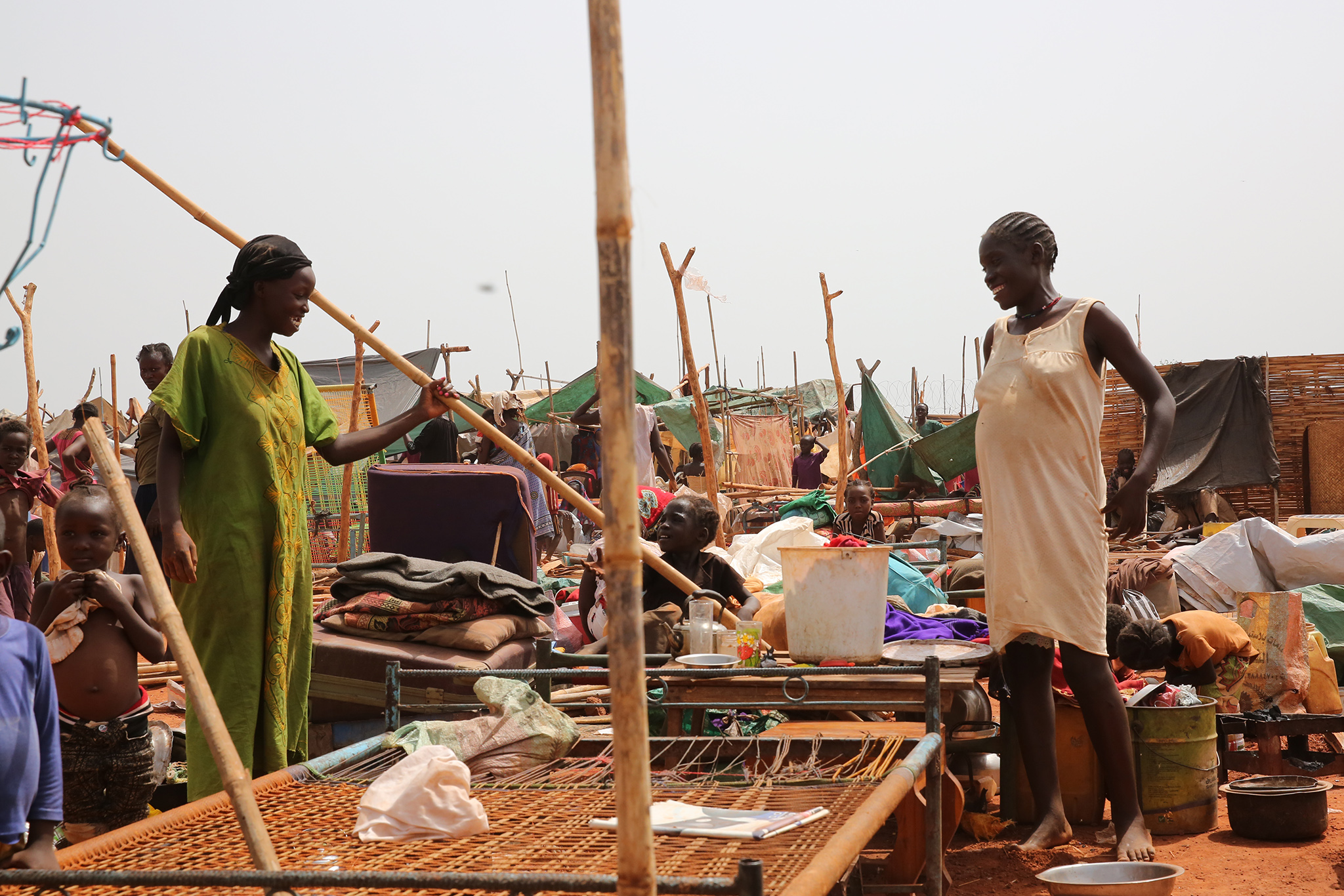
If in a few days, Covid-19 saturated advanced health systems, such as the Spanish or Italian ones, what can happen in the refugee camps? © UN Photo/Nektarios Markogiannis
The information coming from these people is dramatic and often non-existent in real time. It is easy to imagine that if the developed world has not yet established exact criteria on how to count those infected and killed by a pandemic such as Covid-19, in countries where the lack of rigorous census and the endemic lack of transparency and rigor are common, it is very difficult to obtain reliable data on migrations.
Countries suffering from refugee movements often have weak social infrastructures, as is the case in many areas of Africa, Asia and Central America. Adequate host integration is not always an easy task. The Foundation’s project in the Bekaa Valley, in collaboration with Acción Contra el Hambre in Lebanon, highlighted the importance of planning the reception of refugees – Syrian children in this case – in accordance with the existing infrastructure and the cultural mix. In March 2018, according to UNHCR, there were 991,165 Syrian refugees registered in Lebanon, including 357,592 in the Bekaa Valley, an area of water stress and lack of adequate sanitation infrastructure. The effort of the authorities was, and remains, essential to the success of any reception, and must be understood and supported by the international community.
If in a few days, Covid-19 saturated advanced health systems, such as the Spanish or Italian ones, what can happen in the refugee camps? And in the host countries where access to water and hygiene is the privilege of a minority? This is a reflection that should lead to urgent international action. This must not be the pandemic of oblivion.


